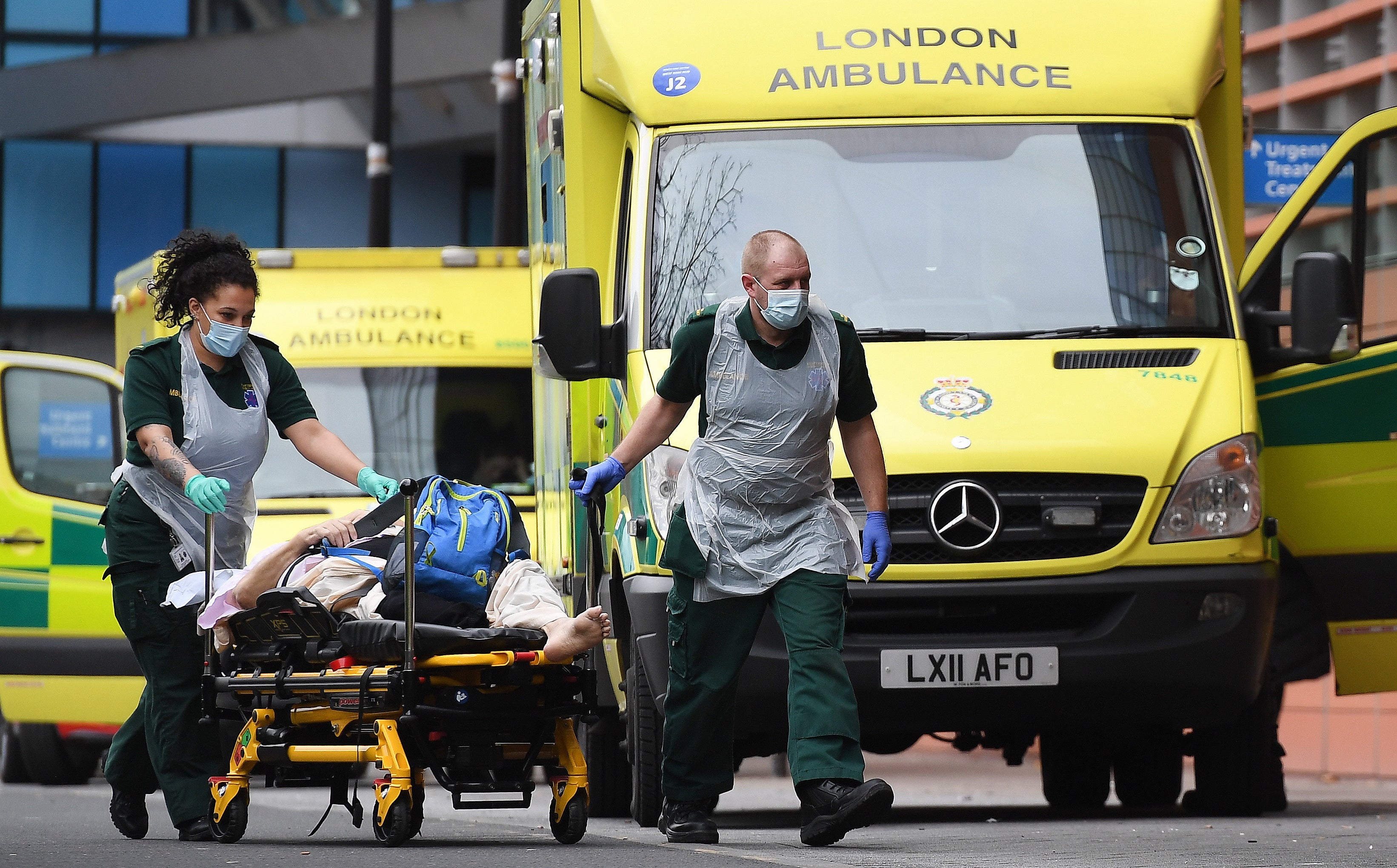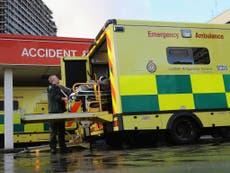Student paramedics spending hours in ambulances outside A&E instead of attending calls
Exclusive: One trainee waited for nine hours outside a hospital in an ambulance to hand over a patient

Student paramedics are missing out on learning how to save lives because they are wasting hours in ambulances outside A&E instead of attending calls, it has been revealed.
The College of Paramedics and ambulance directors say the hold-ups mean trainees are missing vital on-the-job experience, leading to fears over the safety of patients.
As a result, the 2,500 to 3,000 paramedics who qualify each September, joining a workforce of more than 30,000 across the UK, risk being sent out without the level of experience of graduates from previous years.
Will Boughton, of the College of Paramedics Trustee for Professional Standards, said handover delays had become a problem for trainees’ development and exposure to real-life experience, meaning training had become “unpredictable”.
If steps weren’t taken to increase training opportunities and address wider quality concerns in education, “it is very possible that patient safety may be at risk due to missed experience during practice education”, he warned.
“A student could complete a regular shift and see lots of patients, getting lots of things in their portfolio signed off, or they could be the unlucky ambulance that joins the back of a queue and is then at hospital X for however many hours waiting to release that patient, so and it varies from county to county and service to service,” he said.
All students must meet the required clinical standards in order to qualify and although some who have less clinical exposure might feel less confident, it is up to education providers to demonstrate students meet the threshold to pass.
“That’s what should happen. Whether that is happening is a different question entirely and the college are aware of variations in education standards and delivery across the United Kingdom,” Mr Broughton said.
The issue has also been raised by ambulance trusts. West Midlands Ambulance Service said April was the worst month on record for hospital handover delays and was leading to students not getting sufficient contact with patients.
The warnings come after the chief nurse of West Midlands Ambulance Service warned the crisis within ambulance services, driven by delays outside hospitals, meant the service could “collapse” by mid August.
Nathan Le Blancq, a student paramedic in the south east and advisor to the College of Paramedics’ Student Council, said he’d waited up to nine hours in an ambulance to handover a patient, at a hospital where 26 ambulances were lined up outside.
Such delays meant there were fewer opportunities to practise important clinical skills, gain further experience by seeing a range of patients, or learn how to “manage a scene”, Mx Le Blancq said.
“I’ve had shifts where I’ve spent the entirety of my 12-hour shift in the car park. Not necessarily with the same patient… not only is that horrendous for the patient, obviously most importantly, but it does affect our experience as students,” Mx Le Blancq said.
That means spending less time learning important clinical skills and learning how to manage the difficult patient situations they may face once qualified, they said.
Mx Le Blancq also raised concern about the welfare of student paramedics who would normally get a check-up following a traumatic incident to ensure they are okay.
He said: “If I pick up a patient who’s had a stroke, fairly debilitating stroke, I’ve had to take them to hospital without any relatives because that’s the hospital protocol... Then I sit with that patient for five hours and then I go home before that patient goes into the A&E and hand them over. There’s no welfare check [for me]. So I can sit there in an ambulance for five hours looking at someone continuing to have a stroke and that’s not followed up. No one does a welfare check on me unless I ask for it.”
“No one prepared me to have to sit down with a mental health patient for five hours and no one prepared me to sit down with someone having a stroke for five hours.”
A spokesperson for the Association of Ambulance Chief Executives acknowledged extended handover delays could impact the quality of paramedic student placements and that this was a further “unintended consequence of the current system pressures”.
The body said that although Covid and handover delays had impacted the confidence of newly qualified paramedics, trusts were working hard to ensure the right support was in place to ensure those joining trusts were able to give quality care.
West Midlands Ambulance Service said: “We remain confident that the training [paramedic students] receive is fit for purpose.”







Join our commenting forum
Join thought-provoking conversations, follow other Independent readers and see their replies
Comments